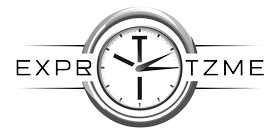Cash-back mortgages are an exclusive type of mortgage that gives customers a cash bonus at the conclusion of the mortgage contract. The concept appeals buyers who are looking to get instant cash to pay for different costs like home improvements and moving expenses, or even to pay off other loans. In this article, we will explore the details of cash-back mortgages. It will go over all aspects of their meanings, including their pros and cons as well as practical uses.

Definition of Cash Back Mortgage
Cash back mortgages provide customers with a lump-sum of money at the beginning of the duration. The amount typically is an amount that is a fraction of the amount of the loan and could range between 1%-7 percent, based upon the lender and particular mortgage.
How Cash Back Mortgages Work
If a person who is borrowing funds is willing to take a cash back mortgage, they will receive an amount that is predetermined upon closing. It is basically an increase in the equity that will be built on their property. Mortgages typically come with higher interest rates as compared with traditional mortgages, to pay for the cash advance that is made at the beginning.
Types and Categories
There are many types of mortgages that cash back, all designed to meet various borrower requirements and financial needs.
Fixed-Rate Cash Back Mortgages
Fixed-rate cash back loans have an agreed-upon interest rate over all the time of the term of the loan. They add predictability for the monthly payment, but comes with higher rates of interest when compared with variable rate options.
Variable-Rate Cash Back Mortgages
Cash back loans with variable rates have rate of interest that may change based on the market. These loans can have lower starting rates, but they carry the potential of higher monthly costs if interest rates increase.
Hybrid Cash Back Mortgages
Hybrid cashback mortgages incorporate the advantages of the fixed rate and the variable rate. They could, for instance, be able to start out with a fixed rate over some time before moving to the variable rate.
Advantages of Cash Back Mortgages
Cash back mortgages have a number of advantages, which make them appealing to some home buyers.
Immediate Access to Funds
One of the greatest benefits is having instant accessibility to cash, which is able to be utilized for a variety of reasons, such as home improvement as well as paying off debt or to pay for moving expenses.
Flexibility in Use of Funds
The funds received from the cash back mortgage may be utilized at the individual’s own discretion. It allows flexibility to satisfy a variety of financial requirements.
Potential for Financial Management
If you are a responsible borrower who are disciplined, the lump sum could be utilized to control the finances more effectively by making home improvements to boost the value of your home.
Disadvantages of Cash Back Mortgages
In spite of the positives however, these loans come with drawbacks which borrowers have be aware of.
Higher Interest Rates
To compensate for the cash given initially, lenders usually have higher interest rates for the cash back mortgage. The result is greater overall cost for the duration of the loan.
Long-Term Financial Impact
A higher rate of interest could result in higher monthly payment and a higher financial burden during the loan term.
Prepayment Penalties
Mortgages that are cash-back may have prepayment penalty, meaning that borrowers may be liable for more charges if they choose to repay the mortgage earlier.
Eligibility Criteria
The process of qualifying for a cash-back mortgage, you must meet certain requirements that lenders have set.
Credit Score Requirements
A high or good credit score is usually necessary to get the cash-back mortgage since it signifies the borrower’s ability and creditworthiness as well as his capacity to pay back the loan.
Income Verification
They will ask for evidence of income in order in order to assure the borrower has satisfying money to make mortgage repayments, in addition to other obligations.
Down Payment
A substantial down payment is generally required. The amount is contingent on the lender as well as the mortgage product in question.
Application Process
A cash back mortgage is a process that requires several actions in order to assure that the borrower as well as the lender are prepared to make the necessary commitment.
Initial Consultation
The process starts in a first meeting with a mortgage professional for a discussion of the borrower’s financial needs and needs for mortgage.
Documentation Submission
The borrower must submit a variety of documents such as evidence of income, credit reports and the specifics of debts that are currently outstanding.
Mortgage Approval
After the documents are reviewed after which the lender decides whether to approve the mortgage as well as the amount of cashback the borrower will be eligible to receive.
Closing the Deal
Following approval, the last stage is to close the deal in which the lender receives the cash amount back and starts making mortgage payments in accordance with the terms of agreement.

Comparison of Cash Back Mortgages and traditional mortgages
The distinction between cash-back mortgages as well as traditional mortgages is essential for those who are looking in making an educated choice.
Interest Rates
They generally come with more interest than conventional mortgages because of the initial cash advantage.
Monthly Payments
The greater interest rates for cash back mortgages payoff in greater monthly installments compared to conventional mortgages.
Long-Term Costs
The cash reward in the short term can be appealing, the longer-term expenses of cash-back mortgages could be more expensive due to the higher interest rates throughout the term of the mortgage.
Use Cases for Cash Back Mortgages
Cash-back mortgages can be appropriate to a wide range of situations which makes them an adaptable investment product.
Home Renovations
The money received could be used to pay for house renovations and improve the value of your home and living standards.
Debt Consolidation
Cash can be utilized by borrowers to pay off and consolidate credit cards with high interest, which could reduce the overall burden on their finances.
Moving Expenses
Instant cash may benefit to pay for expenses that come when moving into a new house, such as the cost of transportation, furniture purchase and various other expenditures.
Real-Life Examples
Learning how mortgages that cash back are helping other borrowers bring important insights.
Case Study 1: Home Improvement
The couple took advantage of their cash loan to make improvements to the house they bought which increased its worth and improving the comfort of reside in.
Case Study 2: Debt Repayment
One of the parents consolidated their high-interest credit card loan together the money taken from their mortgage. This simplified their finances and cutting down on their monthly expenses.
Expert Insights
Mortgage experts provide valuable tips on how to navigate the world of cash-back mortgages.
Financial Advisor Tips
Financial experts recommend taking into consideration the implications for long-term growth of interest rates as well as ensuring the cash-back amount can be used in a prudent manner.
Lender Perspectives
The lenders stress that it is important to be aware of the terms and conditions of all loans, which includes the possibility of penalties for prepayment and the consequences of higher interest rates.
Frequently Asked Questions (FAQs)
What exactly is a cash back mortgage?
Cash-back mortgages are an home loan which provides the customer with a lump-sum of money at the end of the mortgage.
What is a cash back mortgage differ from traditional mortgage?
The most significant differentiator is that a cashback mortgage can serve a cash bonus in the beginning, but usually comes with greater interest rates than conventional mortgages.
What is the excellent use for the money of a cash-back mortgage can be put to use?
The money can be used to fund any goal, such as house renovations, debt consolidation and even for covering the cost of moving.
Do you see any drawbacks with the cash-back mortgage?
There are some disadvantages, but they are higher interest rates as well as possibly higher cost over the long term when compared with traditional mortgages.
Who are eligible to receive the cash-back mortgage?
The criteria for eligibility is usually a high credit score, an adequate income verification and an acceptable down amount.
How can I apply for a cash-back mortgage?
The process of applying for a mortgage begins with a first consultation with a mortgage professional along with the submission of required documentation and mortgage acceptance, before concluding the transaction.
What if I could pay my cash-back mortgage earlier?
However, if you make an early payment of a cash-back mortgage can result in prepayment penalties subject to lender’s terms.
Can cash-back mortgages be an ideal option to first-time buyers?
These can be advantageous for those who are first-time home buyers and need urgent funds. However, it is important to consider the greater interest rate against the cash benefits.
What are the average percentages of cash back mortgages?
The interest rates of cash back mortgages tend to be greater than the rates for conventional mortgages. The rates vary depending on the lender as well as the specific particular.
What is the maximum amount I can anticipate to get from an unsecured cash-back loan?
The amount of cash is typically proportional to the loan amount, usually between 1% and 77 percent.
Conclusion
The cash back mortgage offers an exceptional mix of short-term advantages in terms of financial and financial obligations. They are a great instrument for people who need urgent funds to meet various needs however they come at the cost with higher interest rates and possibly higher long-term expenses. It is essential for the borrower to be aware of the terms and conditions as well as evaluate their financial position and get well-qualified assistance to come to an informed choice. When weighing the pros and drawbacks, they are able to determine whether a cash back mortgage is in line with their goals in terms of finances and demands.
